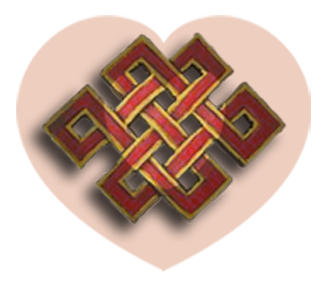Caring for Our Pets & Ourselves at the End of Their Lives
Helping Our Pets Let Go
Chances are, your beloved furry soul mate pet knew before you did that the time to say goodbye was approaching. That doesn’t make it any easier of course. Our pets absorb our thoughts, feelings and emotions in ways we as humans are just beginning to understand. It is quite possible that your thoughts about your pet’s old age, sickness, injury, etc are getting in the way of them being able to let go.
Our pets often tune into our sadness, conflicted grief, worry and concern and internalize it as if they are the cause of your sadness. True, they are, but not because they are “bad.” It is important for us to “send” them the thought-images that whatever the cause of their impairment is, that it is not their fault. They are reaching the end of their life in this body, but they need to be assured that the joy they have given you continues and WILL continue even after their spirit is released. Talk to them outwardly and inwardly to let them know that this is a natural process and that leaving their body does not mean their spirit will be abandoned by you.
This asks a lot of us humans-and this is a good skill that we, as chaplains and ministers, will have a lot of opportunities to practice. When we are involved in care-giving our pet animals OR humans, it is helpful to bring an altruistic awareness to everything we do for them. When we are administering medication, think, “May this elixir transform all elements of suffering and pain into the pure ground of being” or something in that realm of thinking. Compare the energy behind this positive affirmation to the energy of “I am so full of sadness and sorrow that I have to force you to take this.” or, “Here goes another $5.00 pill.” or something like that. Your pet feels the emotional charge in everything you do or feel.
Keep this altruistic line of thought when you are cleaning their excrement, too. Animals have pride-often, when incontinence strikes, they are ashamed and might even expect to be punished. This can be a real challenge to the humans, but you can let them know that this is part of the bond you made when you took them under your stewardship. This is a sign that their bodies are getting ready to let go, and that soon their spirits will be set free from this kind of substance. Be gentle with them when you clean them, tell them it is ok, and try to practice equanimity.
The Journey Ahead: Yours & Theirs
It is wise to have more than one “conversation” with your pet about the journey ahead. Let them know that they will be released from their body into a realm of light and love. Let them know that when that happens their home in your heart will become the most constant place of connection-that you and them will always be together then, that there will no longer be separation. Let them know that once they are released from this body, this body which has served them well and given both of you much enjoyment, that they will experience a freedom that you will celebrate. During these conversations it is helpful to let the animal know how and when you will remember them, such as visits to places you loved, other dog friends, rides in the car, cuddling on the couch, etc.
Our animals want to know that we will be cared for too. Let them know how you will fill your time once they are gone. Show them, through your thought-pictures, what you will do: working in the garden, walking, jogging, biking, playing music, whatever it is that feeds you, let them know that you will continue to engage in these activities. Help them understand that you will be healthy, that you will be engaged, that yes, you will be sad for a little while but that when you are sad at their loss you will talk to them and keep their spirits warm in the present tense of your grief and loss.
Be Ready, Be Aware: Complicated Grief & Exploring Your Own Theology
If you have recently lost someone dear to you, if you were raised with the idea that “boys don’t cry” or “the funeral is over so get over it” or “euthanasia is murder” or any similar code of thought, you might have a very difficult time with initiating your pet’s transition. Be aware that all of this is normal, and utilize whatever resources (see above for some sources) to find your solid ground here.
Your own personal theology about death, or your lack of personal theology around death will factor into your feelings. This is a good time to explore whatever that is or isn’t in the current context of letting your pet go.
Compassionate Release
You can let your pet know that “compassionate release” or euthanasia is an act of love and the highest intention of commitment as a human being in your decision to free them from the suffering of their body. If you plan on ritualizing the passage, you can also let them know what each stage of the ritual means to you and to them. Focus on the release from form to the formless, and give formless an introduction as a place we all come from, go back to, and to some degree, live in on a daily basis. As their spirit transitions, you might feel them hovering around the space you shared with them. If so, acknowledge them, but let them know that they have your full permission to soar the heights of the spirit realm in true joy and freedom, and that you will still be joined with them, even more so, when they are beyond time and space into the formless realms. Your love, your light, your joy, will always be with them-and theirs with you!
Plan Ahead
As you contemplate the time to let your pet go, offer yourself deep discernment around what is best for you. Do you want to keep your pet at home for this transition? If so, get referrals for vets who do home visits. Many vets will offer a deep, respectful compassionate presence as they release your pet in your own home. You might want to keep the body for a while afterwards for your own prayers or for closure with respect to other family members who might need to see the pet before burial or cremation.
If you are doing the euthanasia at home, it is important to make arrangements to either bury your pet, bring the body to a pet crematorium, or have the vet take the body or come back to pick up the body after you have closure. Think ahead. Get all your ducks in a row before choosing the date and time so that when the moment comes, you can be totally present with all that is on the day.
When the Hour has Come
When the time has come for your pet’s final vet appointment, do what you can to be at peace. Some people make a special bed for their beloved. Some give them their favorite foods if they can still eat. If you have personal deities or teachers who you feel would be good spirit guides for your pet’s transition, you can make a little altar near the bed. It is good to keep in mind though that these things are more for your own peace. For your pet, YOU are their guide, their deity, their protector. Their needs are very few at this point.
Some people have soft, gentle music playing. Again, that is fine, but know that this is more for you. As your animal’s consciousness goes from being tranquilized to finally leaving its body, sometimes it is best to have silence. As the vet administers the sedative before the terminal injection, if possible, allow your palm to gently hover above your pet’s forehead, drawing the attention and focus of the life force there, in the third eye area, then moving and holding your hand above the animal’s crown chakra area before the second injection. You don’t need to touch the animal-the energy from your palm is enough. You can silently pray to the God/Goddesses you find strength in to guide your pet home, visualizing them around your beloved. In this way you can assist the consciousness leaving the body through the highest energy center.
Honor What You Need
Everyone has their own style and needs when dealing with grief and loss. Be true to what YOU need. Some people benefit by cleaning up all of their pet’s toys, leash, bed, bowls, litter boxes, even vacuuming the whole house before the body is taken away. After the body is gone from your house, it might be good to leave the house for a night, or at least the day. Ritualize what you do next, with the focus on self-care. This is what your pet would want. Let the honest tears fall, and allow them to continue as much as they want, but take care of yourself. Do something physical, do something distracting, sit in meditation, take a bath, just do what nurtures YOU.
For others, keeping the remembrances of their pets in the home can help with closure, in which case they might WANT to keep their pet’s toys etc. around. There is no right or wrong with what you need.
Afterwards
Yes, there will be tears. Yes, there will be sadness, loss, grief, perhaps even remorse or guilt. Losing a beloved pet can be even more traumatic than losing beloved humans. After all, they loved you unconditionally. Don’t let anyone minimize your grief. This is really important. “Get over it, it was just an animal.” is one of the most misinformed lines ever. Use care with whomever you turn to for companionship during this time. If you have a friend who has gone through this process, he/she might be a good start. If you need to talk about your grief further, it is helpful to find some local pet-grief/loss groups. If that is not available, there are a number of “rainbow bridge” pet loss on-line forums.
In conclusion, helping you and your pet travel this journey of the soul is a blessing for sure, but is also a painful realization of the impermanence of all our relationships. You can help their spirit release from their body by letting them know that you will never be separate in your heart, and by showing them that you will take good care of yourselves after they are gone. This is a lifelong practice that will serve you well in the transitions of all your relationships, human or animal. Remember to be gentle, hold your intention of love and thanks gently but firmly, and fully recognize the teachings our beloved four-leggeds have to give us by opening your heart more to the many ways the Divine works. In this way you are embracing the true gifts of Animal Ministry.





